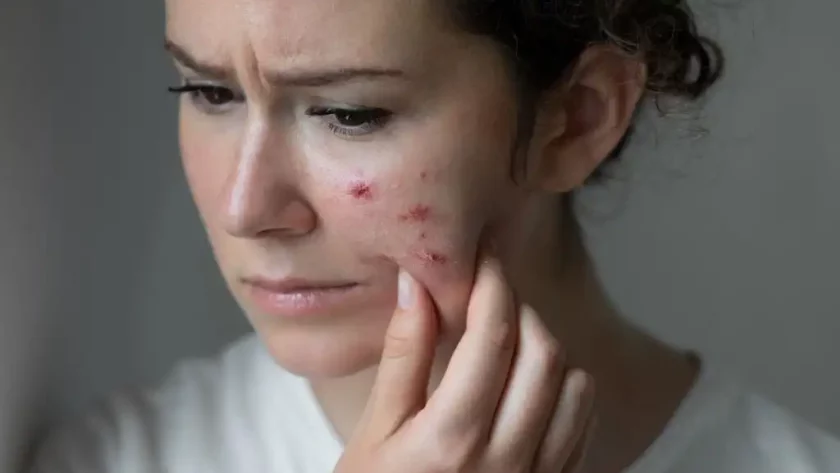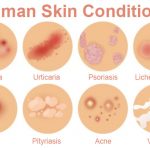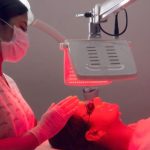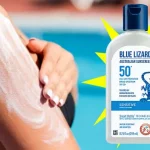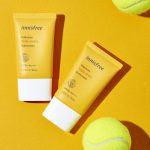Testosterone is one of the most common hormones in males. This sex hormone is responsible for many of the physical characteristics of an adult male and can cause a lot of health conditions if not at the optimum level.
Testosterone is commonly known to affect libido and energy levels. But it also affects other aspects of the body, like the skin and its appearance. In this post, we discussed how testosterone affects your skin and the signs of aging.
Effects of Low Testosterone on the Skin
Low testosterone levels have significant effects on the skin. These effects are:
- Skin can become dry
- Those with a skin condition like psoriasis get worse
Other ways testosterone affects the skin
#1. Testosterone Increases the Thickness of the Skin
Testosterone is a type of androgen and a very common sex hormone. Some cells in our body, such as collagen, are primed to react to androgen. The greater the level of androgen in an individual’s system, the more collagen they produce.
Collagen, as you are probably aware, is a protein that helps in the formation of many bodily structures, such as hair, bones, muscles, and skin. It helps ensure that the skin is firm, plump, and smooth. The more collagen you have, the more attractive your skin will be. This is why men display signs of aging faster than their female counterparts.
#2. Testosterone Boosts Microcirculation
Scientists have discovered, for a long time, that there is a connection between testosterone and blood circulation. Low testosterone levels are linked with rigid arteries and other circulatory issues. This effect is also visible under our skin, in our microcirculation ( the little network of capillaries that move nutrients to our skin and rid it of waste).
Men’s skin often gets adequate nourishment because they have large microcirculation networks. And while this can raise the chances of developing rosacea or other signs of circulatory issues with age, it can maintain the skin’s youthful appearance.
To ensure you aren’t caught unawares with testosterone issues, we would recommend testing your testosterone levels. You don’t necessarily have to visit a hospital or see a doctor; what you need is an online platform that offers accurate testosterone test. The test is usually effective, precise, and fast. Plus, the test results are sent via email.
#3. Testosterone Boosts Skin Oil Production
Sebum, aka skin oil, is produced in the sebaceous gland under your skin. This gland, which is in the midst of hair follicles, is usually numerous on the face and head. Plus, they are androgen receptors. And high levels of testosterone cause them to release more sebum.
Although not everyone loves oily skin, it’s good for us. Sebum consists of many oils, like triglycerides and fatty acids, that moisturize the skin, ensuring it doesn’t become dry like the desert. This means male skin is always hydrated, thus, reducing the signs of aging. But, of course, too much skin oil isn’t good, as it can result in clogged pores and acne.
#4. Men are More Susceptible to Adult Acne
Earlier, we mentioned that men produce more sebum, aka skin oil. Because of this, they are more likely to experience acne once they become adults.
Acne occurs when sebum and dead skin cells block your skin pores and hair follicles. Too much skin oil can drag the process of shedding dead skin cells, increasing the chances of acne breakout. While that may seem like bad news, here is some good news to console you: sebum boasts antibacterial properties that fight inflammation and help alleviate irritated skin.
#5. More Testosterone – More Acidic Skin
Sebum is an essential part of the skin’s acid mantle, its shield against moisture loss and infection. Since men produce more sebum than women, their acid mantle is more powerful, and their skin usually has a lower PH. Of course, this is good, as all our skin is naturally slightly acidic, between 4.7 and 5.75 pH (similar to black coffee).
This slight acidity is necessary for supporting our skin’s natural flora, protecting against bacteria, and holding on to moisture. So, yet again, male skin tends to age slower than its female counterpart due to its ability to ward off infection and protect itself against damage.
Conclusion
Testosterone affects the health and appearance of your skin, and plummeting levels can result in signs of aging. To maintain healthy testosterone levels and keep your skin looking youthful, consider hormone replacement therapy, or healthy lifestyle, or other effective methods.

